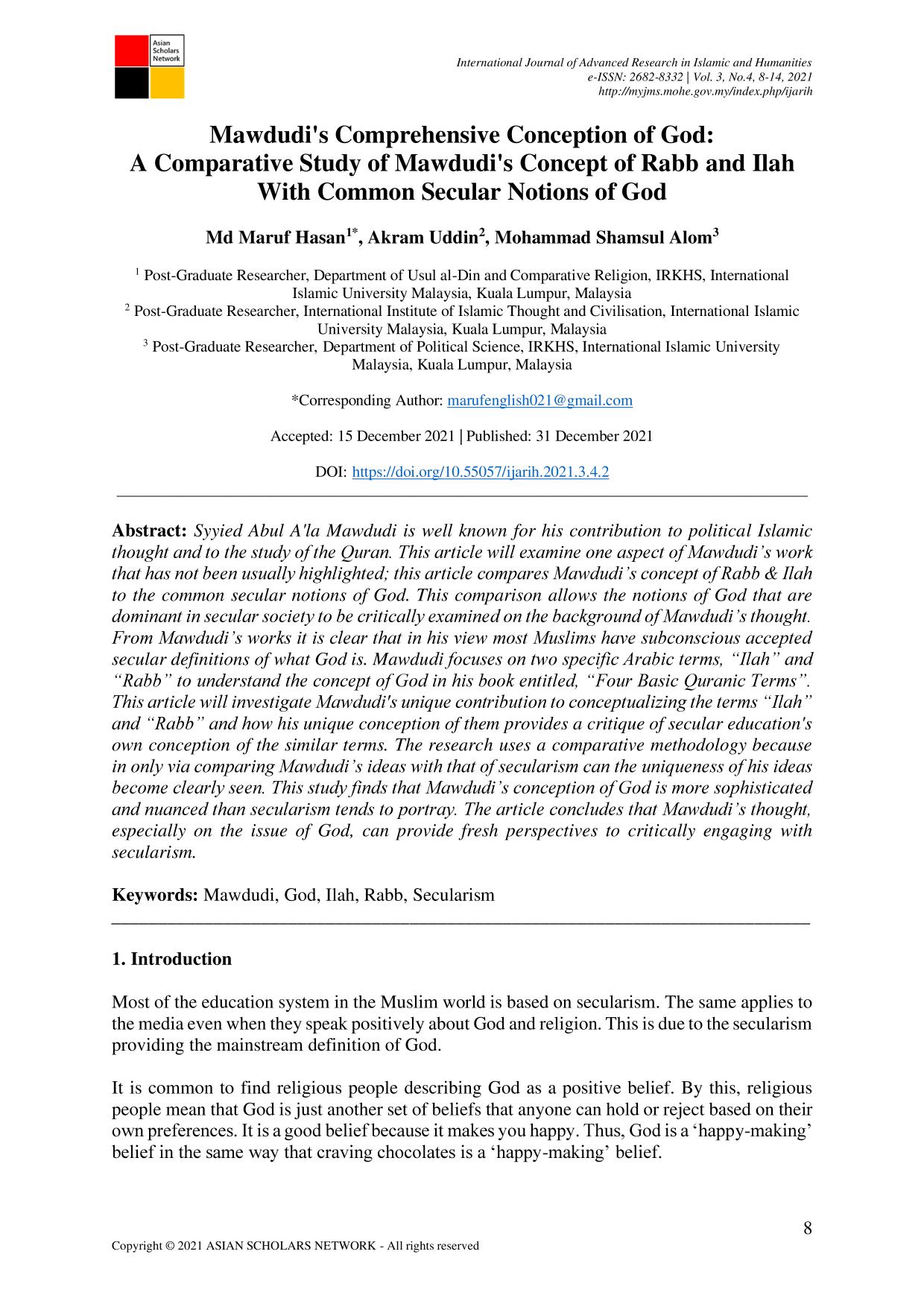
Mawdudi's Comprehensive Conception of God: A Comparative Study of Mawdudi's Concept of Rabb and Ilah With Common Secular Notions of God PDF
7 Pages·2021·0.2143 MB·other
Most books are stored in the elastic cloud where traffic is expensive. For this reason, we have a limit on daily download.
Preview Mawdudi's Comprehensive Conception of God: A Comparative Study of Mawdudi's Concept of Rabb and Ilah With Common Secular Notions of God
Description:
Syyied Abul A'la Mawdudi is well known for his contribution to political Islamic
thought and to the study of the Quran. This article will examine one aspect of Mawdudi’s work
that has not been usually highlighted; this article compares Mawdudi’s concept of Rabb & Ilah
to the common secular notions of God. This comparison allows the notions of God that are
dominant in secular society to be critically examined on the background of Mawdudi’s thought.
From Mawdudi’s works it is clear that in his view most Muslims have subconscious accepted
secular definitions of what God is. Mawdudi focuses on two specific Arabic terms, “Ilah” and
“Rabb” to understand the concept of God in his book entitled, “Four Basic Quranic Terms”.
This article will investigate Mawdudi's unique contribution to conceptualizing the terms “Ilah”
and “Rabb” and how his unique conception of them provides a critique of secular education's
own conception of the similar terms. The research uses a comparative methodology because
in only via comparing Mawdudi’s ideas with that of secularism can the uniqueness of his ideas
become clearly seen. This study finds that Mawdudi’s conception of God is more sophisticated
and nuanced than secularism tends to portray. The article concludes that Mawdudi’s thought,
especially on the issue of God, can provide fresh perspectives to critically engaging with
secularism.
See more
The list of books you might like
Most books are stored in the elastic cloud where traffic is expensive. For this reason, we have a limit on daily download.
